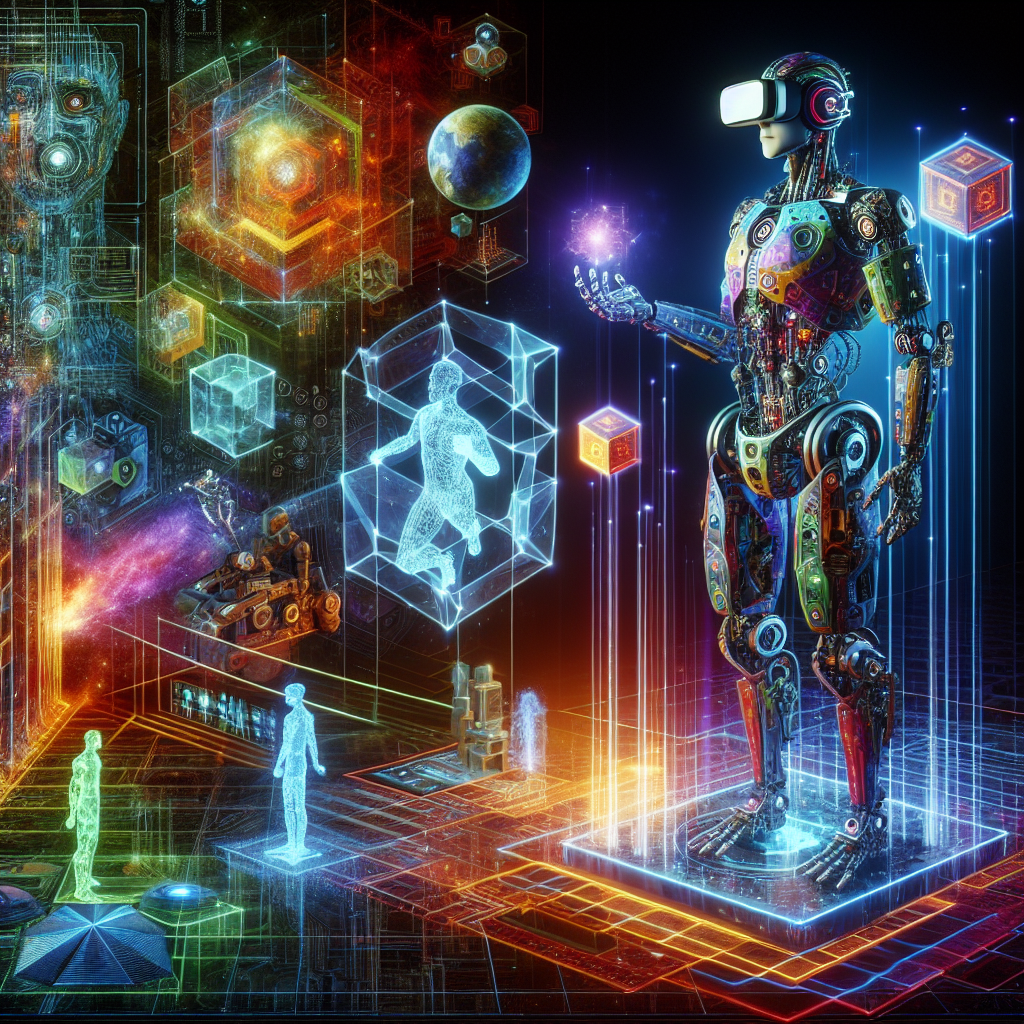The Role of AI in Virtual Reality Games
Artificial intelligence (AI) has been making significant advancements in recent years, and its integration with virtual reality (VR) technology is opening up new possibilities in the world of gaming. The combination of AI and VR has the potential to revolutionize the gaming industry, providing players with more immersive and engaging experiences than ever before.
One of the key roles that AI plays in VR games is in creating more dynamic and realistic environments. AI algorithms can be used to generate virtual worlds that react to the player’s actions in real-time, creating a more immersive and interactive experience. For example, AI can be used to create intelligent non-player characters (NPCs) that adapt their behavior based on the player’s actions, making the game world feel more alive and responsive.
AI can also enhance the gameplay experience by providing more challenging and intelligent opponents. In traditional video games, the behavior of NPCs is often scripted and predictable, making it relatively easy for players to anticipate and counter their moves. With AI-powered NPCs in VR games, players can face opponents that adapt their strategies and tactics on the fly, providing a more dynamic and engaging gameplay experience.
Furthermore, AI can be used to enhance the overall gaming experience by providing personalized content and recommendations to players. For example, AI algorithms can analyze a player’s behavior and preferences to suggest new games or experiences that they might enjoy, creating a more tailored and enjoyable gaming experience.
In addition to enhancing gameplay, AI can also play a crucial role in optimizing the performance of VR games. AI algorithms can be used to dynamically adjust graphics settings and rendering techniques based on the player’s hardware capabilities, ensuring a smooth and lag-free experience. This can help to overcome some of the technical limitations of VR gaming, such as motion sickness and low frame rates, making the experience more enjoyable for players.
Overall, the integration of AI into VR games has the potential to revolutionize the gaming industry, providing players with more immersive, engaging, and personalized experiences than ever before. As AI technology continues to advance, we can expect to see even more innovative uses of AI in VR games in the future.
FAQs
Q: How does AI enhance the realism of VR games?
A: AI algorithms can be used to create intelligent NPCs that adapt their behavior based on the player’s actions, making the game world feel more alive and responsive.
Q: Can AI make VR games more challenging?
A: Yes, AI-powered NPCs in VR games can provide more challenging and intelligent opponents that adapt their strategies and tactics on the fly.
Q: How does AI personalize the gaming experience?
A: AI algorithms can analyze a player’s behavior and preferences to suggest new games or experiences that they might enjoy, creating a more tailored and enjoyable gaming experience.
Q: How does AI optimize the performance of VR games?
A: AI algorithms can dynamically adjust graphics settings and rendering techniques based on the player’s hardware capabilities, ensuring a smooth and lag-free experience.

